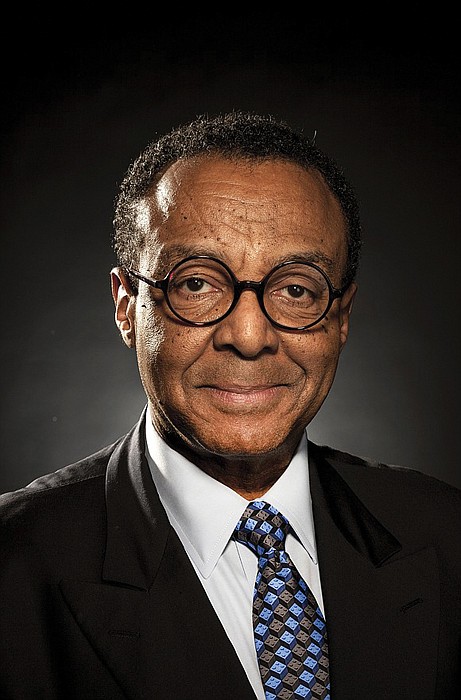Equal justice, even for Trump, by Clarence Page
4/6/2023, 6 p.m.
Yusef Salaam, whom you may remember as one of the exonerated Central Park Five, had only one word to tweet to those who wanted to know his feelings about the indictment of Donald Trump:
“Karma,” he offered. Karma? I’ve heard about it. Drawn from concepts of re-birth in Indian religions, I’ve been advised to think of karma as a form of cosmic justice:
Good deeds and intent lead to good karma and happier re-births while bad karma may lead to times that are not so jolly.
Mr. Salaam was one of five Black and Hispanic teenagers wrongfully imprisoned for the 1989 rape of a white woman in New York’s Central Park, a case that later was explored in a 2019 Netflix series “When They See Us” and a PBS documentary “The Central Park Five.”
In 1989, before any of the five teens had been tried, Mr. Trump, then a major Manhattan real estate developer with a bottomless appetite for self-promotion, took out full-page newspaper ads calling for the death penalty to be reinstated in New York.
Adding kerosene to public anger at the time, the ads were reported to have played a major role in securing a conviction. So did false confessions, it turned out, since no DNA linked them to the crime scene and their descriptions of the victim didn’t match.
Mr. Salaam served nearly seven years in prison before he and the other wrongfully accused teens— Antron McCray, Kevin Richardson, Raymond Santana and Korey Wise— were exonerated in 2002. Serial rapist Matias Reyes, already in prison, confessed to the assault and DNA confirmed his admission.
Ah, how the mighty have fallen. The presumption of innocence until proved guilty seemed almost nowhere to be seen in Mr. Trump’s world when the Central Park Five case raged across the headlines and boiled over into a national media frenzy.
Yet, as Mr. Salaam mentions in his tweet, Mr. Trump— for whom “apologetic” is not part of his brand— never has apologized. Still, he seeks the presumption of innocence he has denied to others. So be it. Let’s see how well his innocence claims hold up.
For now, Mr. Trump’s chants of “Lock her up” in his 2016 race against Hillary Clinton come to mind. Now that it is he who faces what has been reported to be more than 30 counts related to business fraud in a sealed indictment from a Manhattan grand jury, I wonder: Can chants of “Lock HIM up” be far behind?
Still, the stress test to which the former president has put our criminal justice system offers a valuable opportunity to view fairness in our system with new eyes.
Rep. Marjorie Taylor Greene, the ultraconservative Republican from Georgia, suddenly has become a major advocate for inmates of the District of Columbia jail, now that their ranks were joined by detainees from the Jan. 6, 2021, assault on the U.S. Capitol.
Interesting, I said to myself. Since the alleged insurrectionists are mostly white and the D.C. jail’s traditional population is overwhelmingly Black, maybe now they can see how the other half lives.
Unsurprisingly, they were shocked. The jail’s conditions, were so bad that 34 of them suggested in a letter to federal court last fall that they would rather be moved to Guantanamo Bay.
Detainees, through their lawyers, raised concerns that included threats from guards, standing sewage, and skimpy food and water. A federal judge held top jail officials in contempt after they delayed prompt medical care for a Capitol defendant in their custody.
Things have gotten better, spurred partly by Rep. Greene and other congressional visitors. But the irony of how it took 40 or so Capitol rioters to get more attention and action than the jail’s roughly 1,400 total inmates is not lost, especially on the inmates of color.
Rep. Greene, seldom known for understatement, visited the jail and likened the rioters inside to “prisoners of war,” implying that they were being punished for their politics.
Actually they’re being held for a lot more than that. Don’t forget the physical assaults on Capitol Police with pepper spray, bear spray and riot shields, just for starters.
Equal justice for all is a cherished ideal in the American system, a system they tried to disrupt. We must do all that we can to preserve that ideal, even for those who try to destroy it.
The writer is a syndicated columnist and senior member of the Chicago Tribune editorial board.







